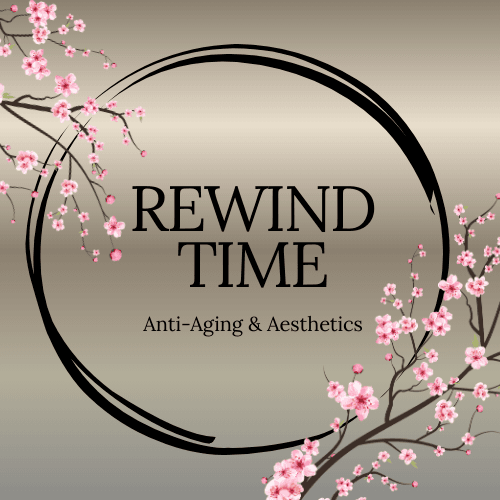Cutting-Edge Hair Restoration Solutions for Men & Women
Effective Telehealth Treatments for Hair Loss, Backed by Prescription Medications
FollicaPro
$119
per bottle
Virtual Consultation
30 mL bottle
FollicaRx
$110
per bottle
Virtual Consultation
30 mL bottle
FollicaBoost
$99
per bottle
Virtual Consultation
30 mL bottle
FollicaLash
$110
per bottle
Virtual Consultation
4 mL bottle
Dutasteride
$79
per bottle
Virtual Consultation
30 day supply
BM
$89
per bottle
Virtual Consultation
30 day supply
BFM
$99
per bottle
Virtual Consultation
30 day supply
Understanding Hair Restoration: Proven Solutions for Hair Loss
Hair loss can feel like an uphill battle, but with today’s advances in medical science, it’s no longer left to chance. Whether you’re experiencing thinning hair, receding hairlines, or more significant hair loss, there are effective treatments available that can prevent further loss and encourage regrowth. This guide will walk you through why hair loss happens, what you can do to stop it, and the most reliable medications that deliver real results.
Why Hair Loss Happens
Hair Loss in Men
Men most commonly experience hair loss due to androgenetic alopecia, or male pattern baldness. This type of hair loss occurs when hair follicles shrink under the influence of dihydrotestosterone (DHT), a hormone derived from testosterone. The follicles become smaller and produce thinner hair until eventually, hair growth stops.
Other contributing factors include:
- Hormonal Changes: As men age, testosterone levels decrease, and this decline impacts hair growth.
- Genetics: A family history of hair loss increases the likelihood of experiencing it.
- Lifestyle Factors: Stress, smoking, and poor diet can exacerbate hair thinning and loss.
Hair Loss in Women
Women’s hair loss is often linked to hormonal imbalances. These fluctuations can occur during pregnancy, menopause, or as a result of medical conditions such as thyroid issues or polycystic ovary syndrome (PCOS). Lower estrogen levels, especially post-menopause, can also lead to increased shedding and thinning.
Other causes include:
- Female Pattern Baldness: Like men, women can experience androgenetic alopecia, although it typically manifests as overall thinning rather than specific bald spots.
- Nutritional Deficiencies: Lack of essential vitamins and minerals may weaken hair follicles, leading to hair loss.
- Stress: Both physical and emotional stress can cause hair to thin or shed.
How to Prevent Hair Loss and Stimulate Regrowth
While genetics and hormones play a significant role in hair loss, there are effective methods to slow the process and encourage regrowth. The key is addressing the root causes, such as DHT sensitivity, hormonal imbalances, or poor scalp health, through a combination of medications and lifestyle changes.
Medications Proven to Deliver Results
When it comes to addressing hair loss, certain medications stand out as the most effective and reliable options. These treatments, when applied topically, target the scalp directly for safer, more focused results without the risk of systemic side effects.
1. Minoxidil
Minoxidil is one of the most well-known and FDA-approved treatments for hair loss. It works by increasing blood flow to the scalp, which stimulates hair follicles and encourages regrowth. It’s effective in both men and women and is applied topically or taken orally.
2. Finasteride
Finasteride is typically known as a medication that blocks DHT, the hormone responsible for shrinking hair follicles. However, when applied topically, it delivers the same DHT-blocking benefits without the risks associated with systemic hormone changes. This makes it a safer, yet still powerful, option for preventing hair loss.
3. Dutasteride
Dutasteride is a prescription medication used to treat male pattern baldness and enlarged prostate (BPH). It works by blocking DHT, a hormone linked to hair loss. By reducing DHT levels, Dutasteride can slow or stop hair loss and may promote regrowth, especially for those who haven't responded to Finasteride.
4. Ketoconazole
Ketoconazole is an antifungal agent commonly used in medicated shampoos. It also has anti-DHT properties, making it an effective part of a hair loss regimen. It helps reduce inflammation in the scalp and can improve the overall effectiveness of treatments like Minoxidil and Finasteride.
5. Latanoprost
Originally used to treat glaucoma, Latanoprost has been shown to stimulate hair follicles and promote hair regrowth when applied topically. It works by prolonging the growth phase of hair, resulting in thicker and fuller hair over time.
6. Tretinoin
Tretinoin, a derivative of vitamin A, promotes the turnover of skin cells and helps improve the absorption of other topical treatments, like Minoxidil. It enhances the scalp’s health, creating a better environment for hair to grow.
Why Topical Treatments Work
Topical hair loss treatments offer a more targeted approach to preventing hair loss and fostering regrowth. By delivering medication directly to the scalp, these treatments focus on the areas most in need, reducing the risk of side effects commonly associated with oral medications. This localized action ensures that the medications act where they are needed most—at the hair follicles.
Topical Solutions Can:
- Stop Hair Loss: By targeting DHT and other causes of hair loss directly at the source.
- Foster New Growth: Stimulate hair follicles to encourage thicker, healthier hair.
- Promote Scalp Health: Maintain a healthy environment for hair regrowth by reducing inflammation and improving circulation.
Why Oral Treatments Work
Oral hair loss treatments provide a systemic approach, addressing the root causes of hair loss from within. While topical solutions target specific areas of the scalp, oral medications like Finasteride and Dutasteride are absorbed throughout the body, allowing them to reduce DHT levels more effectively. This comprehensive action helps to lower DHT in both the scalp and bloodstream, which can prevent further hair loss and support regrowth over time. Oral treatments are particularly beneficial for those with more advanced hair loss, as they ensure that DHT is blocked on a larger scale, offering a potent and convenient solution.e needed most—at the hair follicles.
Supplements to Support Hair Growth
In addition to topical treatments, maintaining good overall nutrition can help support hair health. Here are some supplements to consider:
- Biotin: Known for strengthening hair and nails, biotin supports the body’s production of keratin.
- Vitamin D: Low levels of vitamin D have been linked to hair loss, so making sure you’re getting enough can support healthy hair growth.
- Zinc: Essential for hair tissue repair and growth, zinc is particularly important if you’re experiencing hair thinning.
- Saw Palmetto: This natural supplement helps block DHT production, making it a great complement to other hair loss treatments.
- Iron: A lack of iron, especially in women, can contribute to thinning hair, so ensuring proper iron intake is important.
Maintaining Healthy Hair at Any Age
Hair loss is a natural part of aging for many people, but with the right treatments, it doesn’t have to be permanent. Understanding what’s causing your hair loss—whether it’s hormonal, genetic, or due to external factors—allows you to choose the best treatments for your situation. A combination of proven medications and healthy lifestyle choices can slow down the process and, in many cases, encourage regrowth.
Frequently asked questions
Who is eligible for this treatment?
Individuals experiencing hair thinning or loss may be candidates for this therapy. A consultation with a healthcare provider is necessary to determine eligibility based on medical history and hair loss severity.
What can I expect during the treatment process?
The treatment involves applying the compounded solution to the scalp as directed by a healthcare professional. Regular follow-ups will be scheduled to monitor progress and make any necessary adjustments.
Are there any side effects?
Like all medical treatments, potential side effects can occur, but they vary depending on individual health and the specific medications used. Discuss potential risks with your healthcare provider.
How long does it take to see results?
Results can vary, but many patients notice improvements in hair density and scalp health within a few months of consistent treatment.
Can I get prescriptions through telemedicine?
Yes, our specialists can prescribe necessary treatments based on your consultation.
Do I need to visit the clinic in person?
No, our telemedicine services allow you to receive care from the comfort of your home.
Restore Your Hair and Confidence with Rewind Time Anti-Aging & Aesthetics
Expert Hair Restoration Services —Proudly Serving Kansas and Missouri.

